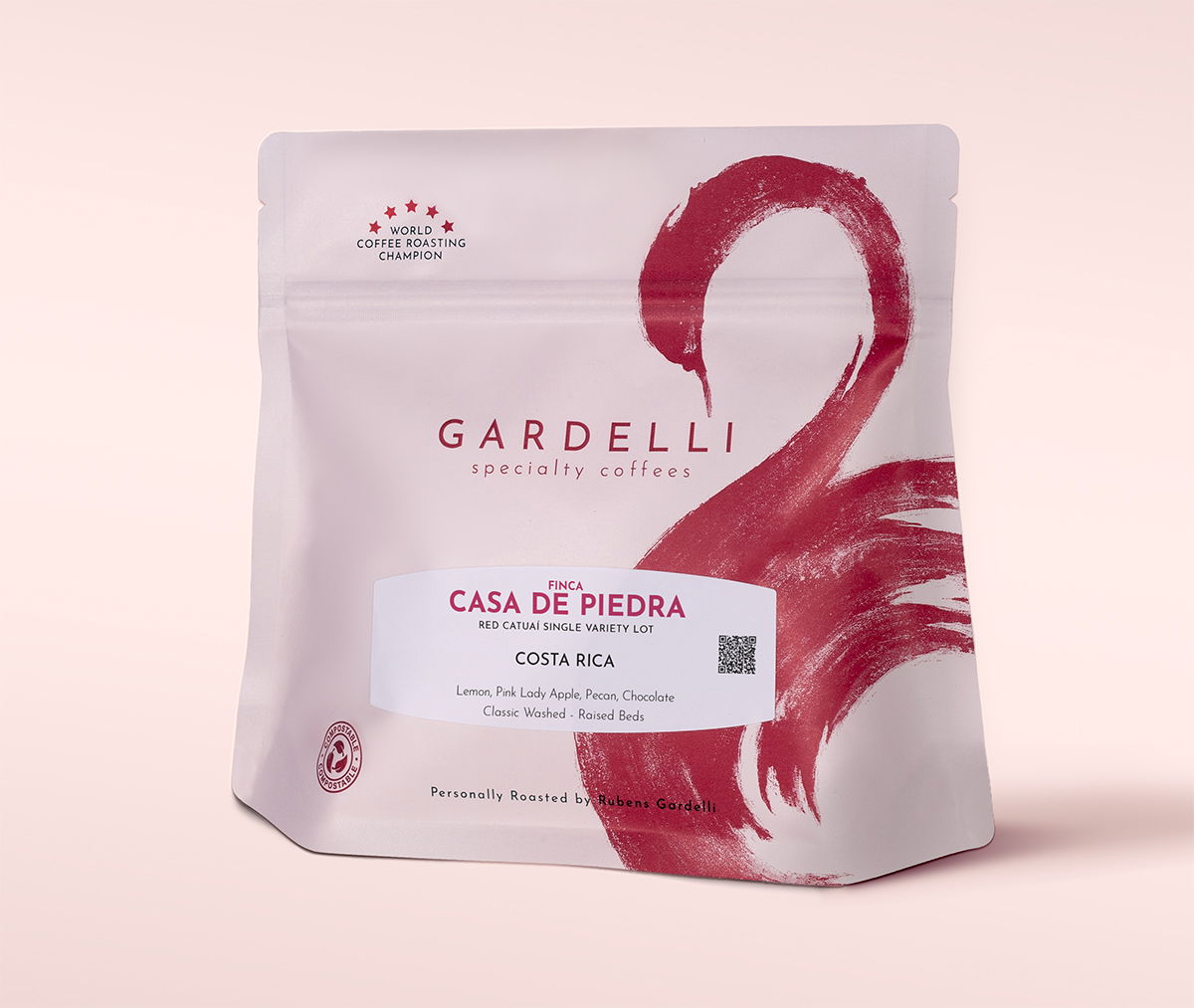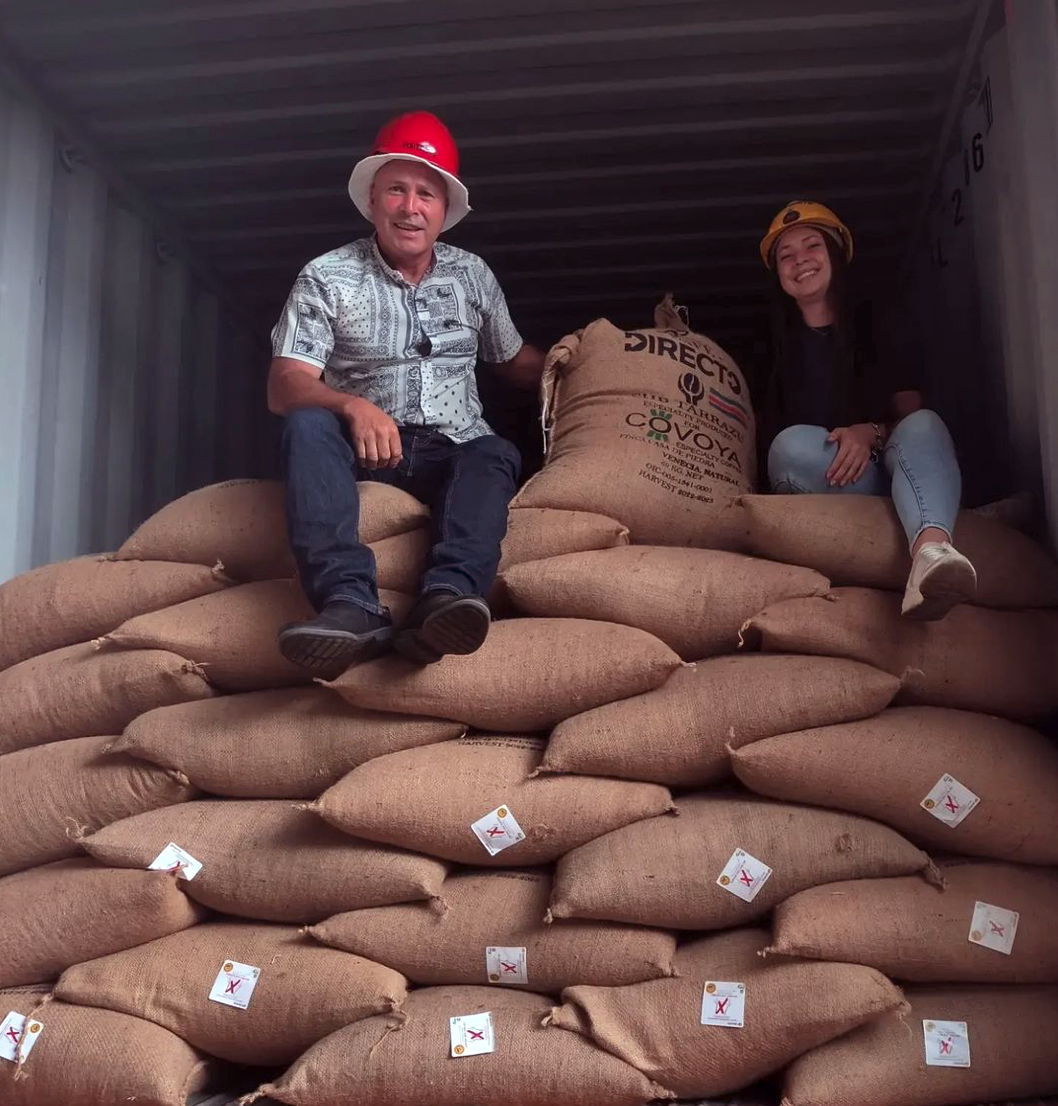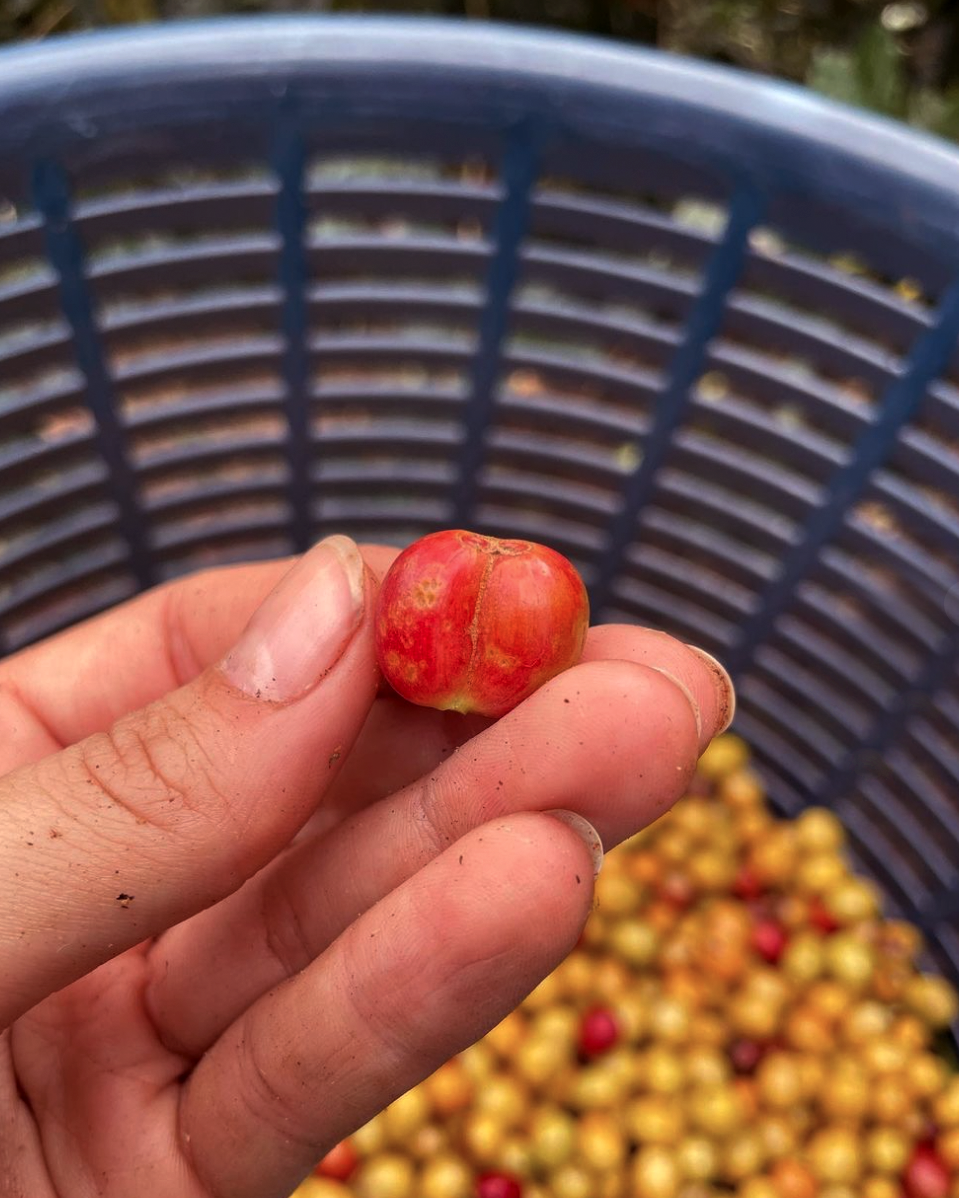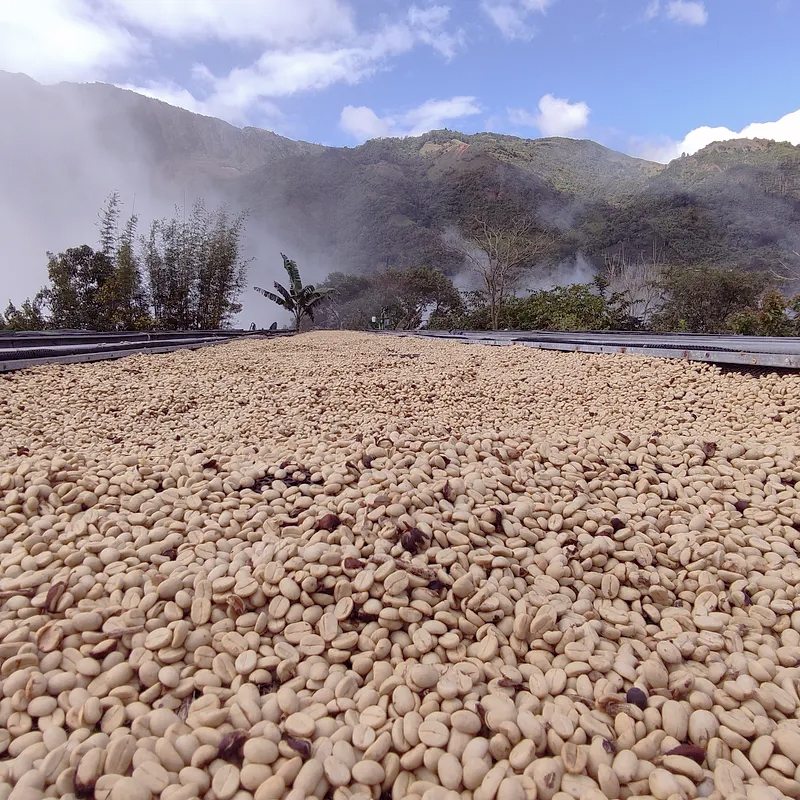







Costa Rica
Cup Notes: Lemon, Pink Lady Apple, Pecan, Chocolate
A unique experience from the heart of the renewed Tarrazù terroir, with the first Costa Rican lot of the season. Sublime sweetness, vibrant citric acidity, silky body, and perfect balance. A clean and delightful taste that captivates the palate.
Suggested for espresso and filter
when we roast
We freshly roast to order all coffees on Monday, Wednesday and Friday (excluding national holidays), and ship the same day! Cut-off time is 11:59pm (UTC+1) of the day before the roast day. *We only ship whole beans*
Finca Casa de Piedra is one of two farms managed by Cafe Directo, a family enterprise established in 2013 by Gerardo and Jennifer Arias. This farm specializes in producing, processing, and promoting the finest Costa Rican Tarrazú coffees, while prioritizing environmental harmony. Cafe Directo aims to promote societal development through fair and ethical trade practices.
With a combined experience of over thirty years, the founders excel in cultivating specialty microlots using diverse methods such as natural, yellow, red, and black honey, anaerobic, semi-washed, and fully washed processes.
The farm's unique attributes, including its microclimate, soil composition, and elevations reaching up to 1,800 masl, provide optimal conditions for multiple coffee varietals to thrive, such as Catuaí, Pacamara, and Geisha.

Catuaí is a cross between highly productive Mundo Novo and compact Caturra, bred by the Instituto Agronomico (IAC) of Sao Paulo State in Campinas, Brazil in 1949. It was released in 1972 after pedigree selection (that is, selection of individual plants through successive generations) and is widely cultivated up to this date.
Outside of Brazil, it was first introduced in Guatemala in 1970, even before the release in Brazil. Currently Catuaí accounts for around 20% of the country's coffee total production.
It is also widely cultivated in Honduras, where it was introduced in 1979 after extensive tests by Instituto Hondureño del Café (IHCAFÉ). It was released commercially in 1983, after IHCAFÉ selected two lines for planting. In Honduras today, Catuaí accounts for nearly half of the Arabica coffee in cultivation. Researchers at IHCAFÉ are actively engaged in breeding with Catuaí and creating hybrid crosses between Catuaí and Timor Hybrid lines.
Catuaí is also economically important in Costa Rica, where a yellow-fruiting Catuaí was introduced in 1985, and its descendants have spread widely through the country.
It has a negligible presence in other Central American countries.
The plant is highly productive compared to Bourbon, in part because of its small size, which allows plants to be closely spaced - it can be planted at nearly double the density. Because of this characteristic, the introduction of Catuaí partly led to the intensification of full-sun coffee cultivation in Central America in the 1970s and 1980s. The plant’s shape also makes it relatively easy to apply pest and disease treatments. It is characterised by great vigour and low height, while it is less compact than Caturra. There are yellow-fruited and red-fruited types, with numerous variation at present. Catuaí's downside is that it is highly susceptible to coffee leaf rust.

The cherries are carefully handpicked to ensure only the ripest are selected. They are then separated by floating to isolate the densest and highest quality cherries for processing.
Once selected, the cherries are depulped, fermented, and washed. They are then dried on a combination of raised beds and patios for an average of eight days.
After drying, the coffee is rested in parchment before undergoing secondary processing at the farm, which includes hulling, sorting, and grading.
